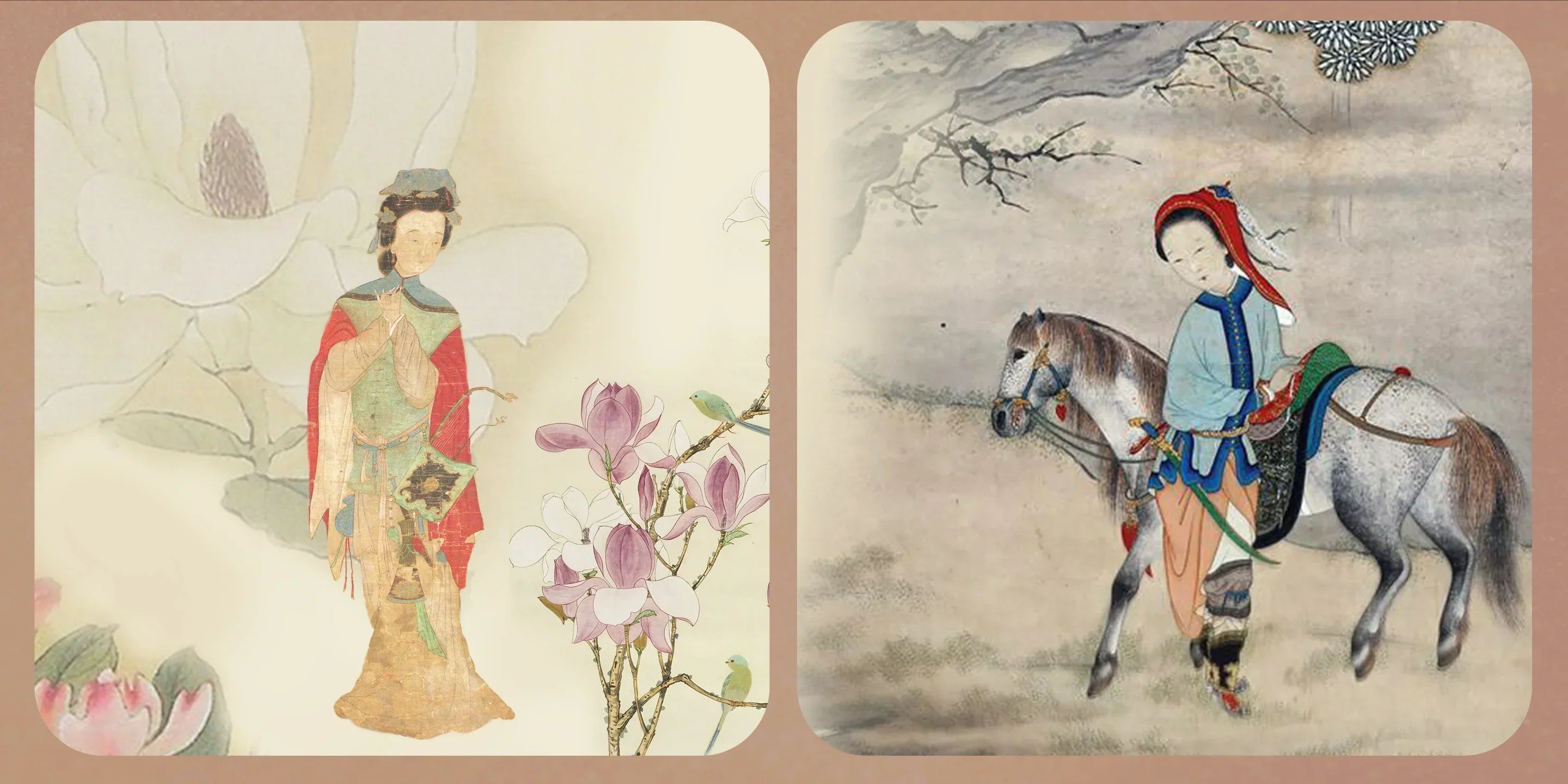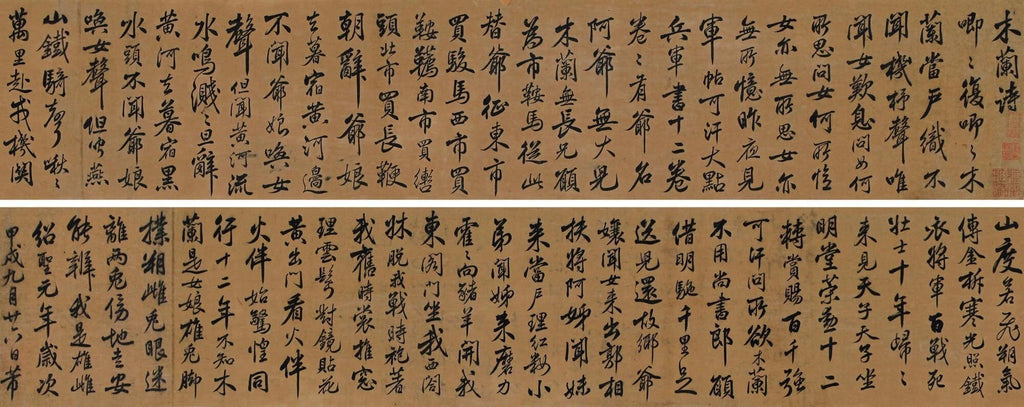
木蘭詩
作者 Laura Hatton,Evan Mantyk;編譯 Ariel Tian
《木蘭詩》,又名《木蘭辭》,是魏晉南北朝時代的北朝民歌,講述了巾幗英雄木蘭替父從軍,忠孝兩全的故事。中國歷史上世代流傳的木蘭形象,便是源自於此。神韻節目《木蘭從軍》講述的便是這個家喻戶曉的傳奇,也是神韻藝術品木蘭系列的設計靈感來源。

宋代書法家米黻(Mǐ Fú)書寫的《木蘭詩》。
《木蘭詩》始見於《古今樂錄》,由南朝佛門修行者釋智匠收錄編纂。這本書原作早已失傳,但其中的很多內容,被著名的《樂府詩集》引用和收錄。《木蘭詩》與《孔雀東南飛》並稱樂府雙璧,可見其在中國文學史中的地位。主流學者相信,當前世間流傳的《木蘭詩》版本經過了唐代文人潤飾,所以詩中既有北朝民歌的剛健古樸,又有「朔氣傳金析,寒光照鐵衣」這種神似詩仙李白的唐代文風。
晚唐著名詩人杜牧的《題木蘭廟》,將萬里從戎的巾幗木蘭與遠嫁和親的明妃昭君相比。杜牧認為,人們也會像在拂雲堆神祠敬奉昭君一樣,將木蘭的忠孝節義千古流傳。可見木蘭的形象在唐代就已深入人心,儘管木蘭的姓氏和身分在後世有諸多爭議。在他的詩中,金戈鐵馬也無法埋沒的女性情懷,就像木蘭花一般,在她的心中靜靜綻放。
題木蘭廟
彎弓征戰作男兒,
夢裡曾經與畫眉。
幾度思歸還把酒,
拂雲堆上祝明妃。

《木蘭從軍》的故事在中國的歷史長河中,被歷朝歷代的藝術家以不同的形式演繹。《隋唐演義》以及明代文學家徐渭的《雌木蘭替父從軍》中,都有對木蘭形象的生動刻畫。各種傳統戲劇,包括歌仔戲、京劇、龍江劇 、評劇、秦腔、豫劇、越劇,也都講述過木蘭的傳說:北魏遷都洛陽後受北方遊牧民族侵犯,朝廷徵召每戶一名男子上戰場,木蘭考量父親年紀已大,弟弟尚幼,於是女扮男裝替父從軍,十二年後功成不居返家孝親。
神韻藝術品木蘭系列的設計,靈感就是源自神韻節目《木蘭從軍》:以方直的線條配上鉚釘來展現木蘭從軍時的堅毅,以優雅的雲肩流線來呈現木蘭居家時的溫婉與孝順。木蘭系列的真皮包都是用義大利真皮手工製作,歐洲的真皮工藝讓這位巾幗英雄的勇氣與情懷穿越時空,在都市麗人的時尚生活中也能一展風采。
神韻藝術品的Evan Mantyk,用富有詩歌韻律的英文翻譯了木蘭詩全文,希望木蘭的傳奇能跨越民族和語言,讓這份流傳千古的勇氣與赤誠,被歷史與文化銘記。
While weaving near the door—
No sound of spinning loom that flies
Just Mulan feeling poor.
What boy is in her heart.
She says, “There’s none I think about,
There’s no boy in my heart.
Of those the Khan has picked.
On all twelve draft lists that exist
My father’s name is ticked.
Who can to battle race.
Once buying horse and saddle are done,
I’ll take my father’s place.”
A bridle in the South,
A saddle blanket in the West,
A long whip in the North.
No sounds of their familiar yell,
Just Yellow River flow.
At dusk, Black Mountains soar;
No sound of parents calling daughter,
Just wild horsemen’s roar.
Through mountain passes flying.
The sentry’s gong on cold wind blows;
Her iron armor’s shining.
In ten years, heroes surface
To meet the Emperor on high
Enthroned in splendid palace.
Gives thousands of rewards.
The Khan asks Mulan what she needs.
“No titles fit for lords,”
And ride home I prefer.”
Her parents, hearing of this deed,
Rush out to welcome her.
She dresses, waits, and looks.
When younger brother hears the news,
The swine and sheep he cooks.
And sit upon my chair.
My wartime uniform is shaken;
My old time dress I wear.”
Fixing cloudlike hair,
And turns then to the mirror, hooking
Yellow flowers there.
Who’d by her side once fought.
For twelve years Mulan was a man,
Or so they all had thought!
And female hares look muddled,
But when they run at a good clip,
How can’t one get befuddled?

























